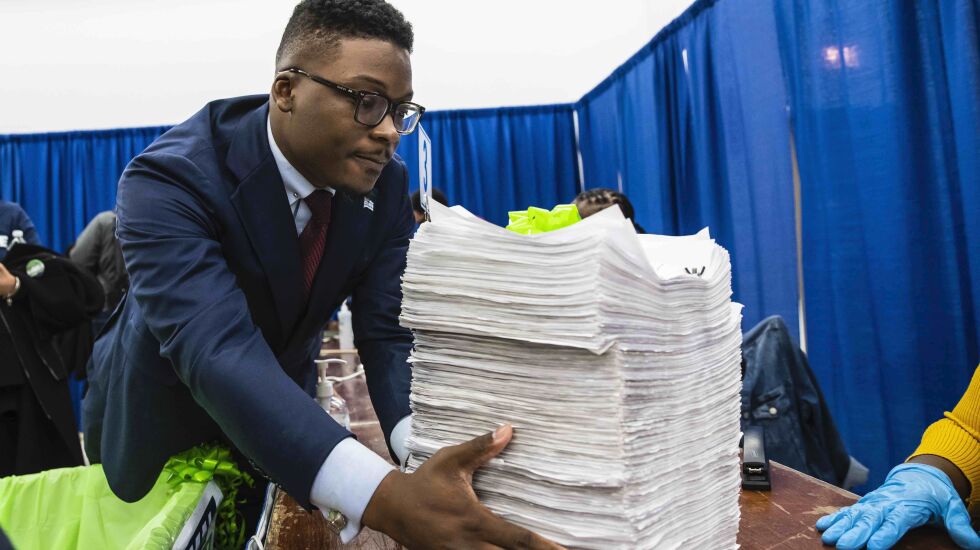Mayoral candidate Ja’Mal Green said Chicago needs a new kind of leader.
It needs one who can make a significant dent in its “epidemic” of violent crime, stop an exodus of residents and give young people and others hope.
“We need to energize a whole new electorate. The vast majority of people don’t vote. We need a candidate who can change that,” he said.
That leader is not, he said, Mayor Lori Lightfoot, a candidate he endorsed after he dropped out of the 2019 race.
The spike in violence since she took office is leading residents to leave, he said.
“Folks from the neighborhoods are leaving. At this rate, we’re gonna continue to see a huge decline in Chicago residents who don’t feel this is a place to raise a family,” he said. “If we don’t have a candidate who really understands this history and how to change it, there won’t be a next generation of Chicagoans in these neighborhoods.”
He continued: “We need a leader who listens, who collaborates, who energizes people to get involved in communities and in the political process. We need young people to feel like they have hope in this city. People are literally in a place where they feel no hope. They don’t feel that things can change. And I’m here to say they can. We’re gonna give people hope and tangible change in rapid time.”
To repopulate South and West Side communities and create a new tax base, Green suggests the city issue $1 billion in annual revenue bonds to create as many as 10,000 new homeowners by providing assistance with down payments and closing costs.
His plans also include a universal preschool program for 3-year-olds; 10,000 year-round apprenticeships for people ages 13 to 25; and making Lightfoot’s guaranteed minimum income pilot a permanent program, doubling its participants to 10,000 and monthly paycheck to $1,000 — with strings attached.
He also said he wants to reopen mental health clinics as holistic “healing houses”; dole out 100,000 Apple or Samsung “air tags” to motorists to reduce the number of carjackings; install image sensors, cameras, concealed speakers and “emergency blue light call stations” on targeted blocks; and create an armed and unarmed “Transit Peace Keepers Protection Agency” to reduce CTA crime.
“We have to change this narrative that public safety is about police, because it’s not. Public safety is about making sure that we tackle the root causes in a mass way,” he said.
He’s also vowing to eliminate annual property tax increases at the rate of inflation that Lightfoot passed to help balance the city budget.
It wasn’t long after Lightfoot took office that Green started publicly criticizing the mayor he had helped elect.

The first public break came when Lightfoot proclaimed as a “done deal” a $95 million police and fire training academy that Green and others called a symbol of Rahm Emanuel’s misplaced spending priorities. In fact, Lightfoot said the project needed to be made bigger with a larger price tag.
That was followed by Green’s criticism of Lightfoot’s selection of David Brown as Chicago Police Department superintendent.
Green also slammed Lightfoot’s decision to seal off downtown by raising the bridges after protests triggered by the death of George Floyd devolved into two devastating rounds of looting. He called CPD’s treatment of protesters heavy-handed.
But the big break between the two came last year when Green spread a false rumor on Twitter that Lightfoot planned to resign — and the mayor fired back.
“I made a misjudgment in a tweet. … I apologized for that,” he said.
One month later, Green accused Lightfoot of putting the kibosh on a $15 million youth center he wants to build on the site of a shuttered elementary school in Auburn Gresham in retaliation for Green’s outspoken criticism of her.
“She takes things too personal and has an allegiance to her friends only,” Green told the Sun-Times at the time.
“Her vindictiveness, her personal vendettas. … If you’re not her friend, she is not willing to help you,” he said.







